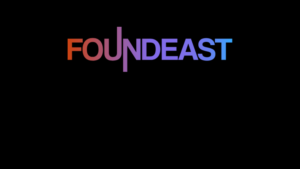Raise your hand if you’ve struggled to decide on a marketing channel like podcasting or blogging.
Raise it again if you struggle to generate leads.

Geeze, you have a lot of problems, huh?
Don’t worry. I’ve been there, too.
There are dozens of marketing channels and strategies you can choose from which makes it that much more difficult to decide which ones are right for your business.
However, blogging and podcasting are two of the most popular right now.
In fact, the content marketing industry is worth approximately $300 billion right now.
They can be used to grow your business organically, create authority in your niche, and generate leads.
Don’t you want results like that?
If so, keep reading. I’m going to teach you the difference between these two channels so you can decide which one is best for you.
What’s the difference between a blog and a podcast?
A blog is a section of a website dedicated to producing written content like articles and news.
Companies use it to drive organic traffic to their own platform versus another, helping them generate leads and sales with a good funnel.
Here’s an example of one of the most popular digital marketing blogs by Neil Patel:
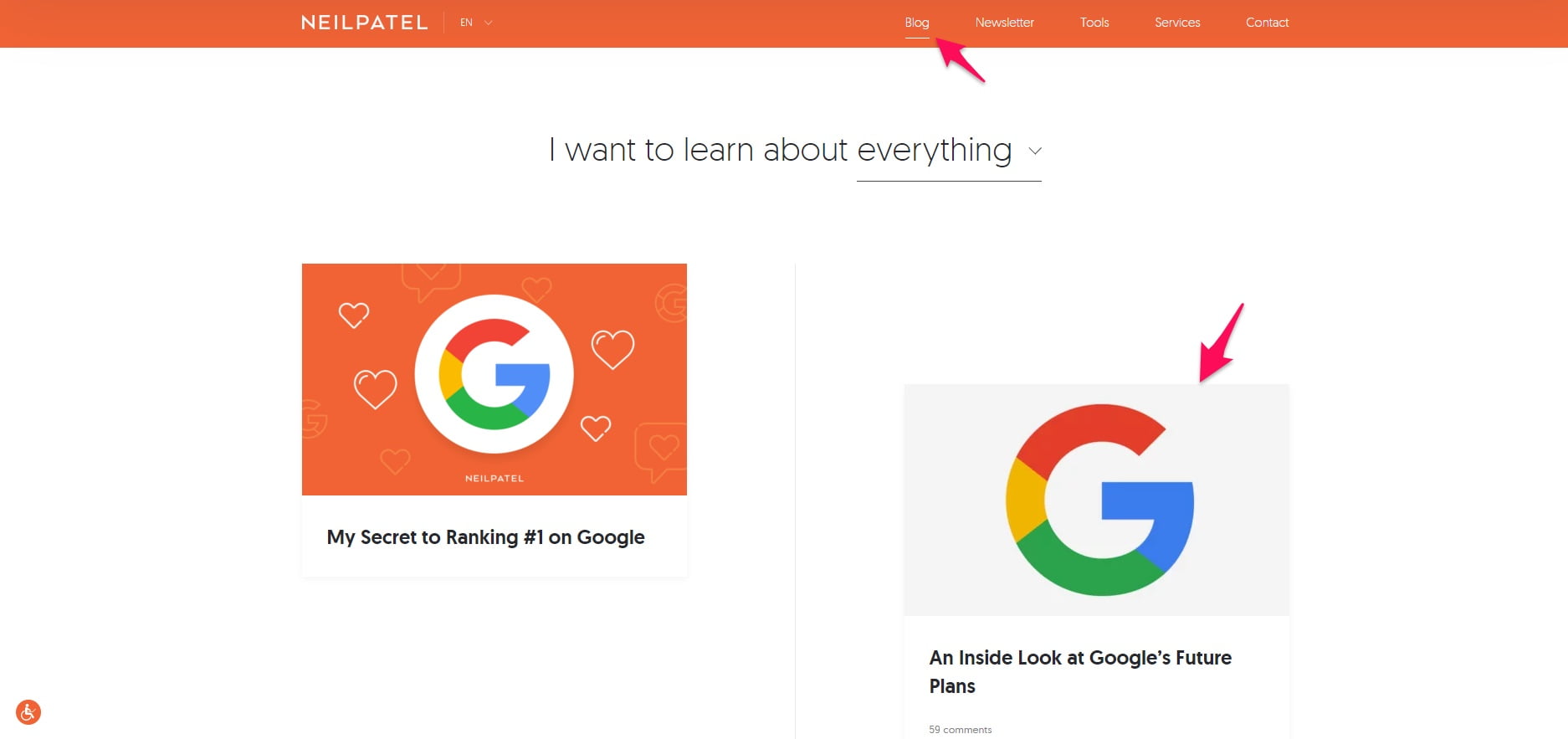
Blog posts cover a large range of topics and styles of writing including:
- Guides
- Tutorials
- Lists
- Round-ups
- News
- Reviews
- Comparisons
- Personal stories
- Etc
Since the beginning of the internet, written content has reigned supreme over all other formats. However, things are changing.
Look at someone like Joe Rogan. His audio podcast receives over 200 million downloads per month!
That means one single man and his audio technician have one of the largest media reaches in the world.
The reality is you can, too.
Podcasts are audio files made available for streaming or downloading
Since you can’t visually see anything like with a blog article, podcasts are best suitable for:
- Interviews
- Quick and bite-sized takeaways
- Lists
- Round-ups
- Reviews
- Strategies and tips
I say this because tutorials and guides are very difficult to do with screenshots and visual cues. They can be done, but blogging definitely takes the cake in that regard.
That brings me to my next point.
Why podcasts are better than blogs
Podcasts are awesome. But, what makes them better than blogging? These are some of the main reasons why.
Quicker and simpler to make
I recently started adding more episodes to my podcast which can be found on Google Play, iTunes, Soundcloud, and Spotify.
Do you know how I recorded each episode?
By simply coming up with an idea, jotting down some ideas, and recording it off of my phone.
You’d be surprised how good it sounds! Check it out here.
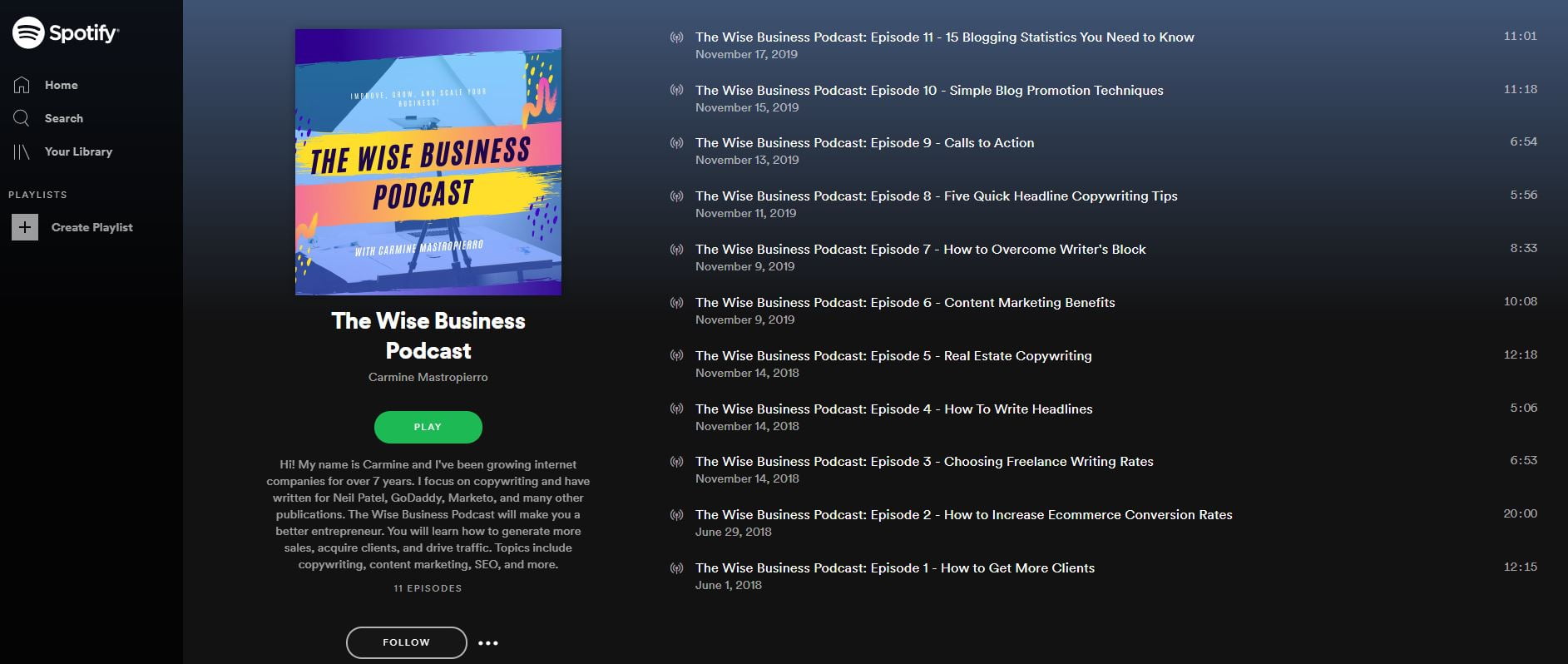
That’s the beauty of creating a podcast: it requires little to no time or energy compared to blogging.
All you need is an idea and a script — which some people don’t have — and start yapping away.
It’s good to have a structure and idea of what you’ll be talking about which is where notes come handy.
The reality is that writing a 3,000 word, data-driven, SEO focused blog post like this takes many, many hours.
There’s outlining, keyword researching, editing, you name it. The steps never seem to end.
Podcasts are much simpler to create and publish.
Less software needed (but more hardware)
A blog requires tons of software and tools to be done correctly.
Sure, you could technically use a free platform like Medium or Blogger, but it won’t get you anywhere.
You need your own hosting, domain name, search engine optimization tools, content marketing tools, and the list goes on.
This makes blogging both more complex and expensive in many cases. If you’re a business serious about growth and attracting customers, these are non-negotiable.
On the flipside, podcasting only requires a microphone and there are heaps of free platforms for uploading episodes.
Watch this video on creating a simple podcast setup by Buzzsprout to see what I mean:
Like I said previously, I record episodes right off my phone if I’m in my car, out and about, or wherever I feel like creating content.
Actually, I recently went to Starbucks to get a few hours of work in when I felt inspired to record a podcast. I spent about 10 minutes spitting out ideas before popping in for a coffee and suddenly I have a great piece of content 🙂
I can’t do that with blogging. I need to be sitting down with Superman-like focus in my office or at a coffee shop with everything planned out.
Podcasting does require more hardware, though. I’m talking a high-end microphone, audio interface, headsets, and more.
Check out Podcast.co’s setup:
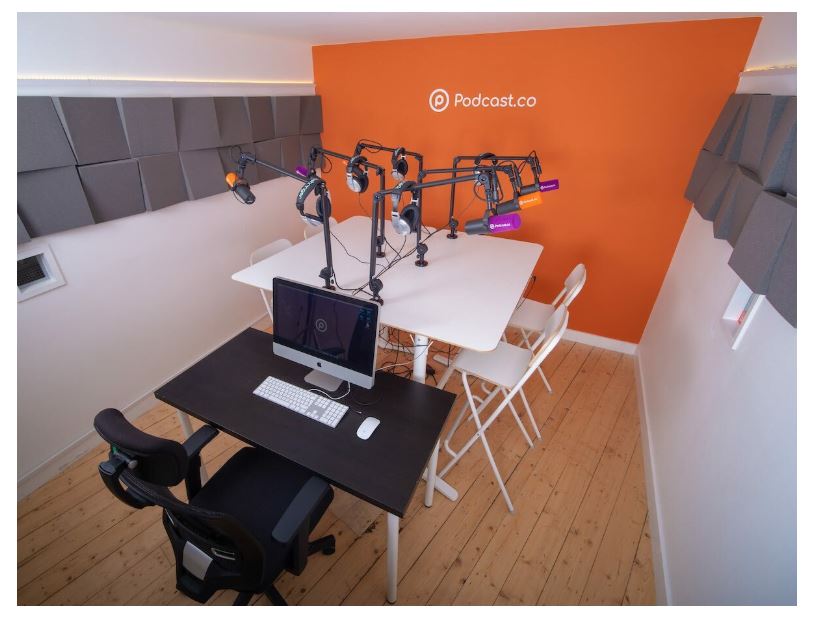
It’s not super complicated but still requires great equipment to pull off.
Easy to syndicate and promote
Creating and uploading a podcast episode is easier than stealing candy from a baby.
The same goes for promoting your podcast episodes and getting them on other platforms.
You see, podcasts have something called an RSS feed which stands for Really Simple Syndication.
It’s a URL that contains the feed to all of your podcast episodes. This link can be connected to platforms like iTunes, Soundcloud, Google Play, Spotify, and others to automatically upload episodes from an original source.
For example, I normally upload on Soundcloud. Since my RSS feed is linked to several other channels, my episode is instantly published there, as well.
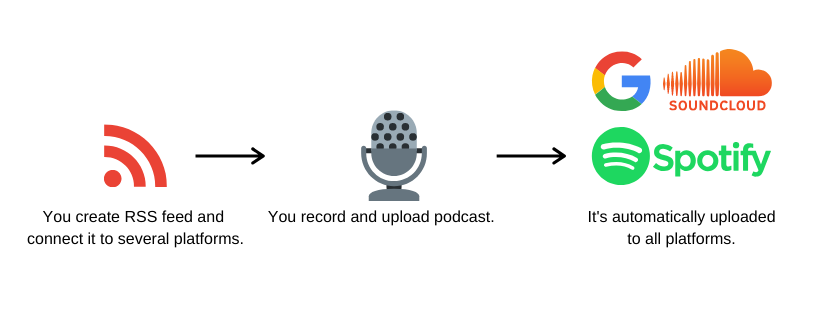
Easy, right?
Since this is the case, growing a podcast is simple as you can rapidly expand your reach.
However, let’s talk about why blogging is so effective.
The flipside: why blogs are better than podcasts
I love blogging. I grow all of my businesses through content marketing and a blog will forever remain at the heart of my content plan.
Here are some of the main benefits of running a blog on your website.
Less hardware needed but more software
As I mentioned earlier, blogging properly does require more tools to get the job done.
However, you need little to no hardware outside of a laptop or desktop.
Obviously a mouse and keyword are good because you need to click and type, but that’s it!
You can get started blogging for little to no costs on platforms like WordPress, Wix, and Medium, too.
I always suggest that you build a blog on your personal website because it drives traffic directly to you versus another channel, but do what works best for your situation.
More opportunities to promote (but more difficult)
Once you’ve created a blog post, there’s no end to ways you can get it out for the world to see.
Outreach is a common strategy involving creating a list of prospects and running them through a CRM to pitch your article.
This commonly leads to high-quality backlinks and quick growth since you’re leveraging other brand’s audiences.
Similarly, you can take a blog post and repurpose it onto LinkedIn, Medium Quora, and other similar channels.
This brings me to my next point.
Increased search engine equity
Search engine optimization mostly applies to websites and blogs. Yeah, you can add keywords to a podcast’s title and description, but that’s about it!
Blogs, on the other hand, can be filled with search terms and often extend thousands of words, creating that much more opportunity to rank in Google.
The result is increased amounts of organic traffic going directly to your website and a larger piece of the pie in terms of search engine market share.
In fact, 82% of marketers agree that SEO is becoming more effective.
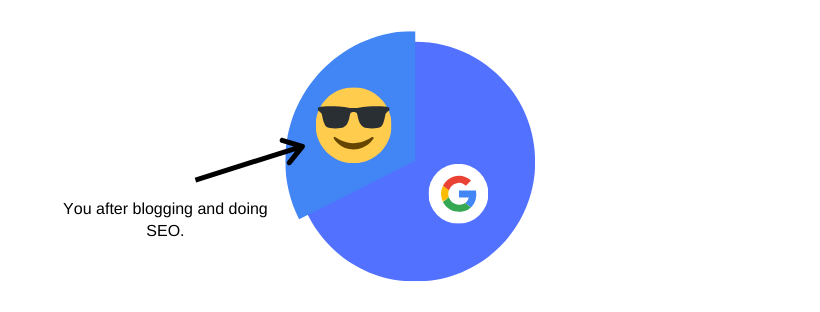
This also implies that your blog is self-hosted and not on a third-party platform which means you have to spend more money.
Blog posts compound over time as you rank for more keywords, gain authority, and other sites link to you.
This same effect doesn’t happen as much with podcasting, unfortunately.
How to choose between podcasting vs blogging
Alright, you know what podcasting is. You know what blogging is.
Now the heck do you choose which one to pursue?
Let’s talk about that.
What’s your budget like?
How many cold hard benjamins are you willing to spend every month on content creation and marketing?
This number will determine whether or not blogging or podcasting is right for you for one simpler reason: blogging is much more expensive.
As I mentioned previously, blogging tools can seriously add up.
Look at Ahrefs, for example. This is one of the most popular SEO tools used for keyword research, topic discovery, and similar processes:
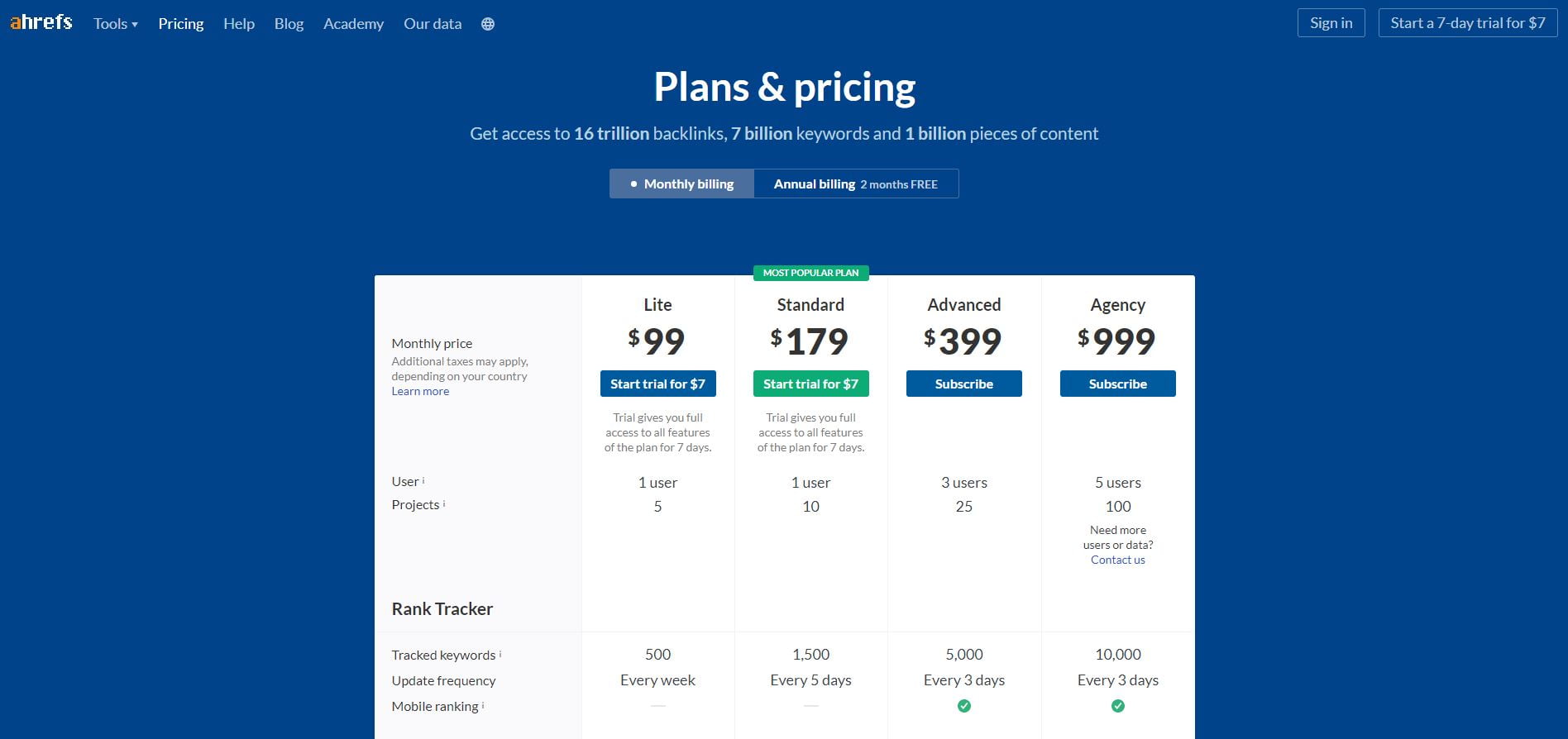
$399/month is more than a car lease!
Similarly, there’s the inbound marketing platform HubSpot which can run double that:
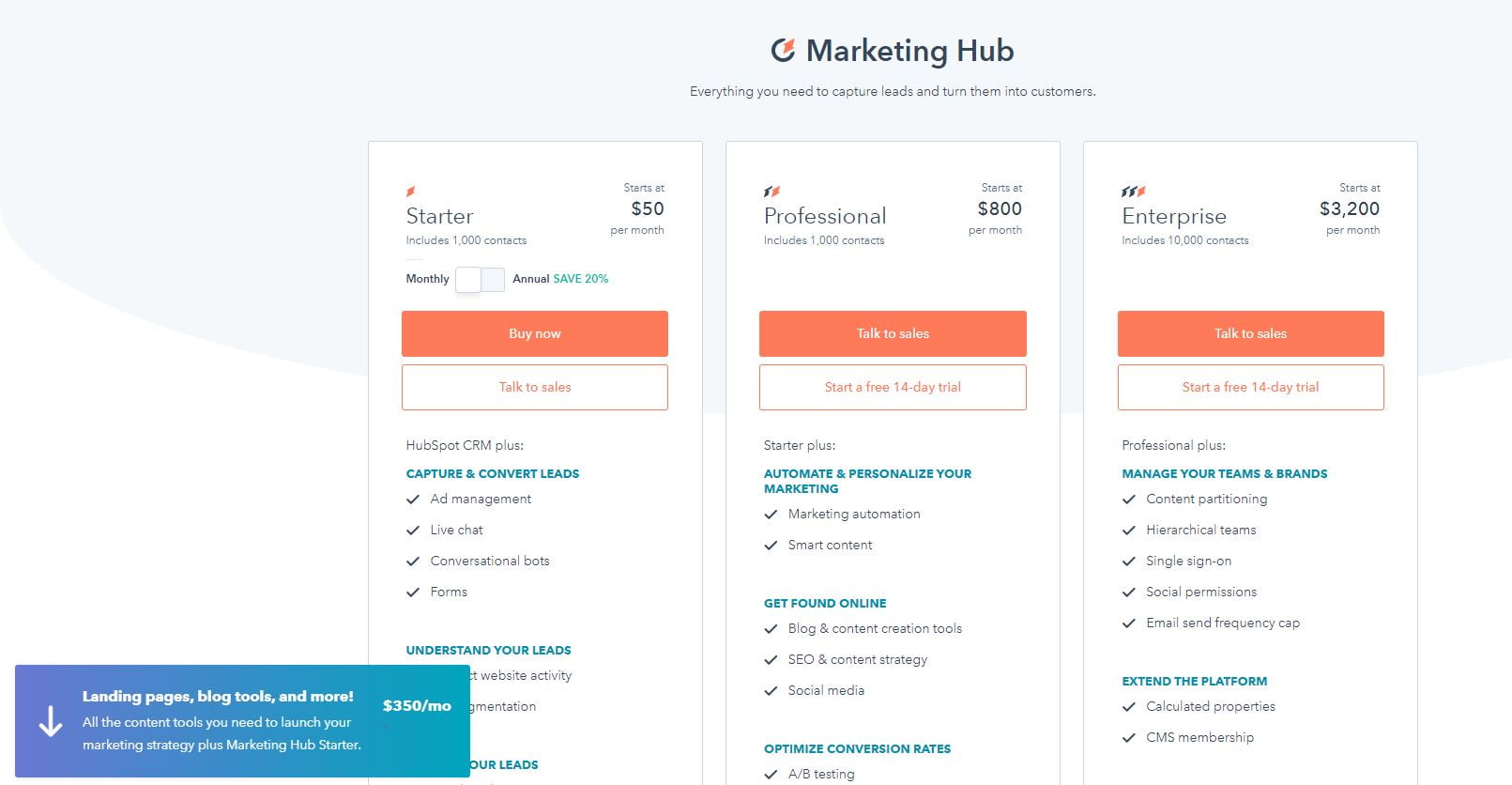
Outside of tools, the real cost of writing great blog content is a talented writer like myself. Check out my content writing services to learn more.
I pride myself in producing incredible results for my client’s and working with big brands, thus my rates are much higher than average.
But it’s not just me. Any writer worth their salt is going to charge high rates which you can learn more about in my previous article on freelance writing rates.
If you have a smaller budget, podcasting is the way to go.
Everything from creating the content to publishing it is much more affordable.
What do you enjoy making more?
I’m a huge fan of following your passion. I love creating all sorts of content, but blogging takes the cake 🙂
That’s why it will forever remain as one of the staple ways I grow a company.
Furthermore, you should simply ask yourself which you enjoy more: podcasts or blogs.
Try publishing both forms of content for an extended period of time and the answer will be obvious.
One you will noticeably look forward to more than the other.
Consider Maslow’s hierarchy of needs, for example.
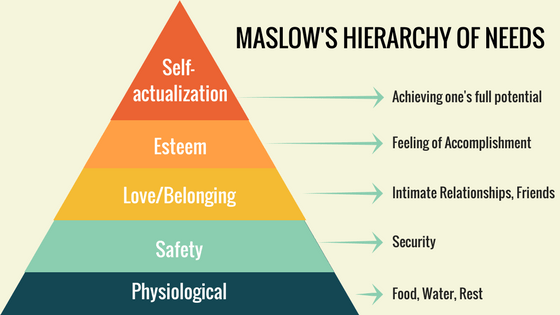
Once we have everything taken care of like food and shelter, self-actualization is at the top of the pyramid.
I consider self-awareness and self-fulfillment to be some of the highest priority elements of life and that applies to business, too.
What channel is your target audience on?
If you knew there was an island full of customers itching to buy from you and another that was deserted, which one would you choose?

The first, of course!
You can look at blogging and podcasting in the same way.
Where do you think or know your ideal customers hang out?
Is it on Spotify and iTunes? Or do they use search engines and networks like LinkedIn more?
Use the knowledge about your customer base to decide which route to focus on.
While it’s effective to be omnichannel, Pareto’s principle always comes into play. This means that 80% of the results come from 20% of actions.
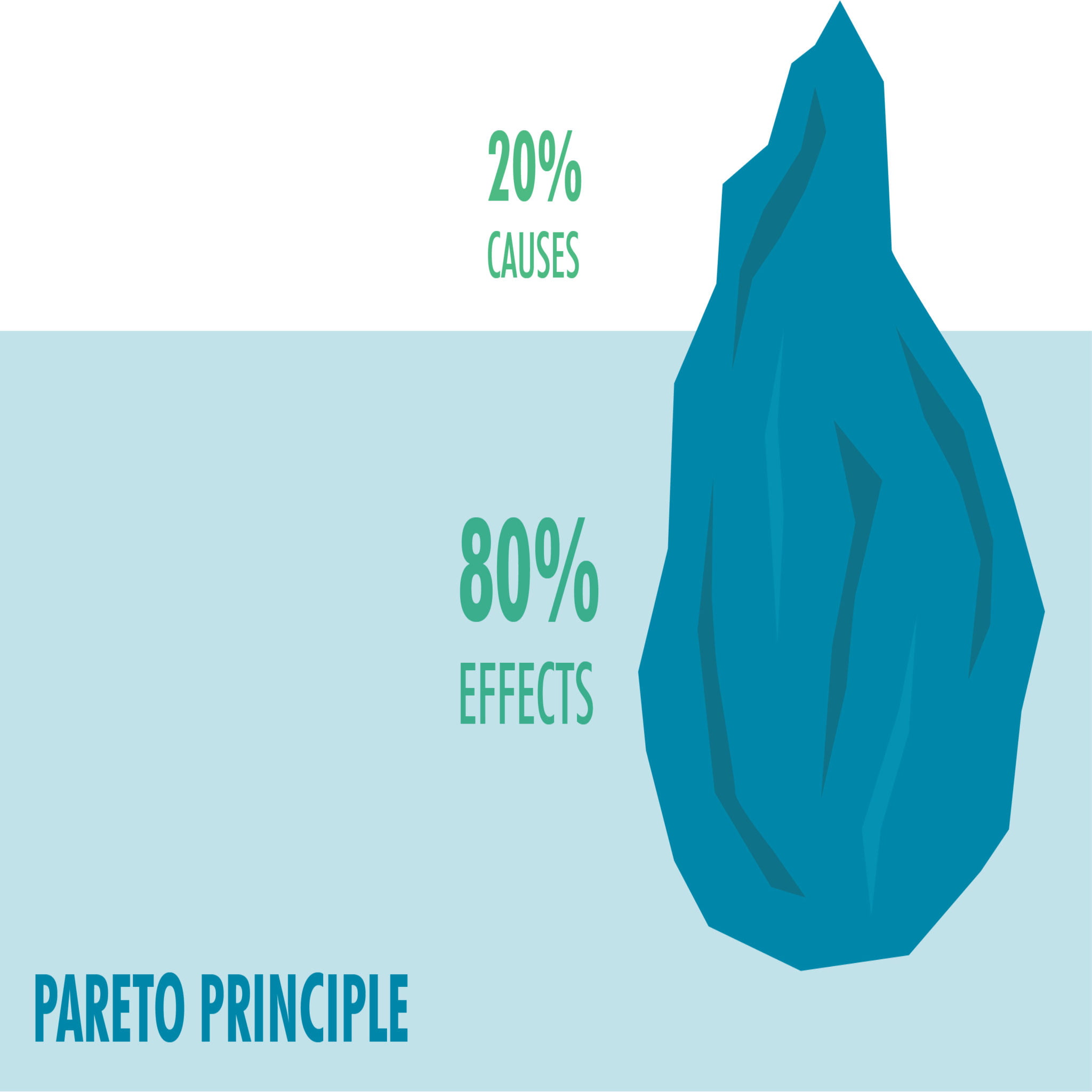
You may notice that 80% of your traffic and leads comes from your blog. In that case, it would be wise to focus more on that channel versus others.
For example, I’ve generated the most leads and results from my personal blog. While I’m beginning to expand into other strategies, would it be smart to drop blogging completely?
Nope!
This is why the smartest thing to do is find the channel that drives the best performance and go wild.
But sometimes you don’t know your customers well enough to instantly choose a channel. In that case, I suggest leveraging market and industry reports.
Head over to Google and search for terms like:
- Industry + market report
- Industry + industry report
- Industry + consumer behavior
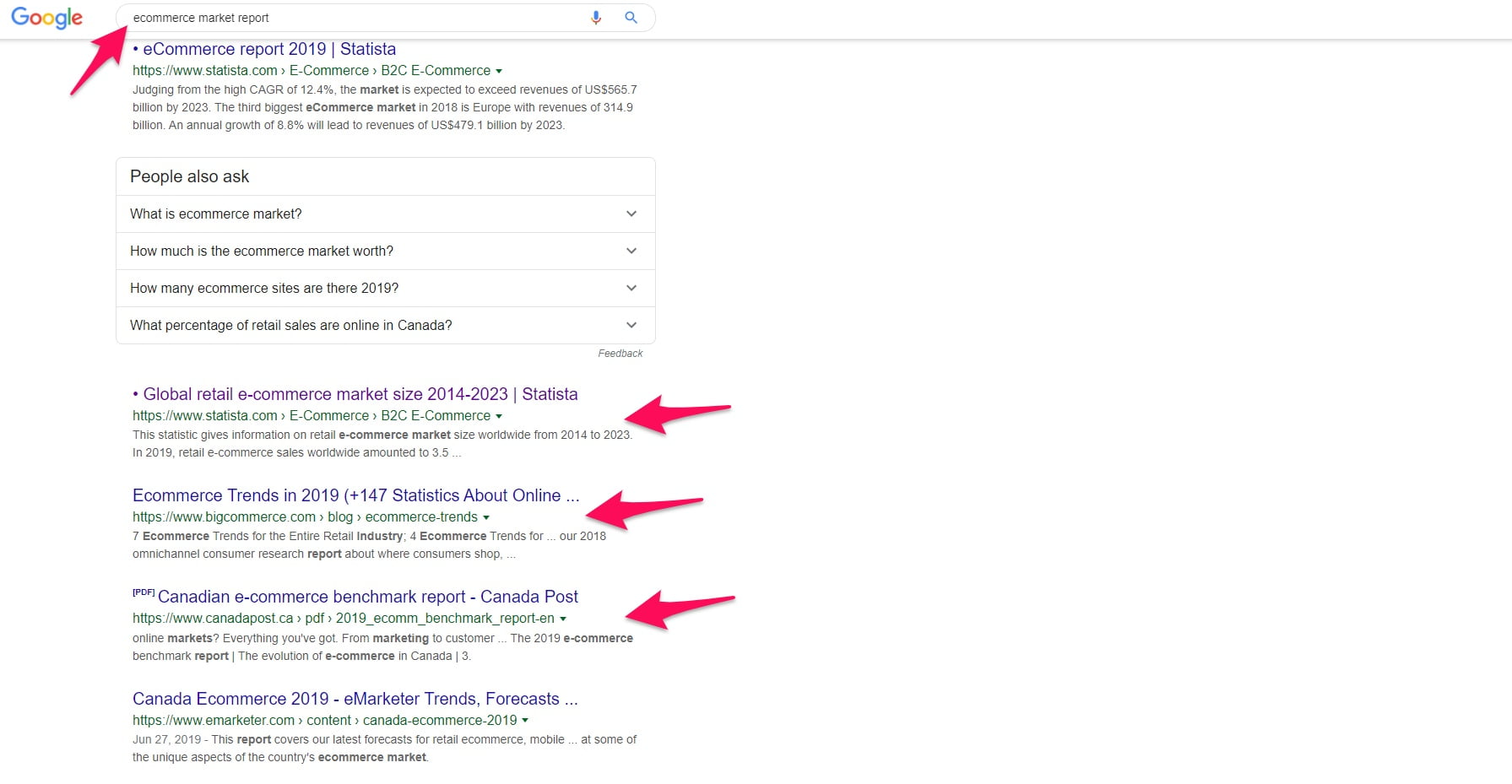
Navigate through free reports and you’ll find practical information like this one from an e-commerce PDF:
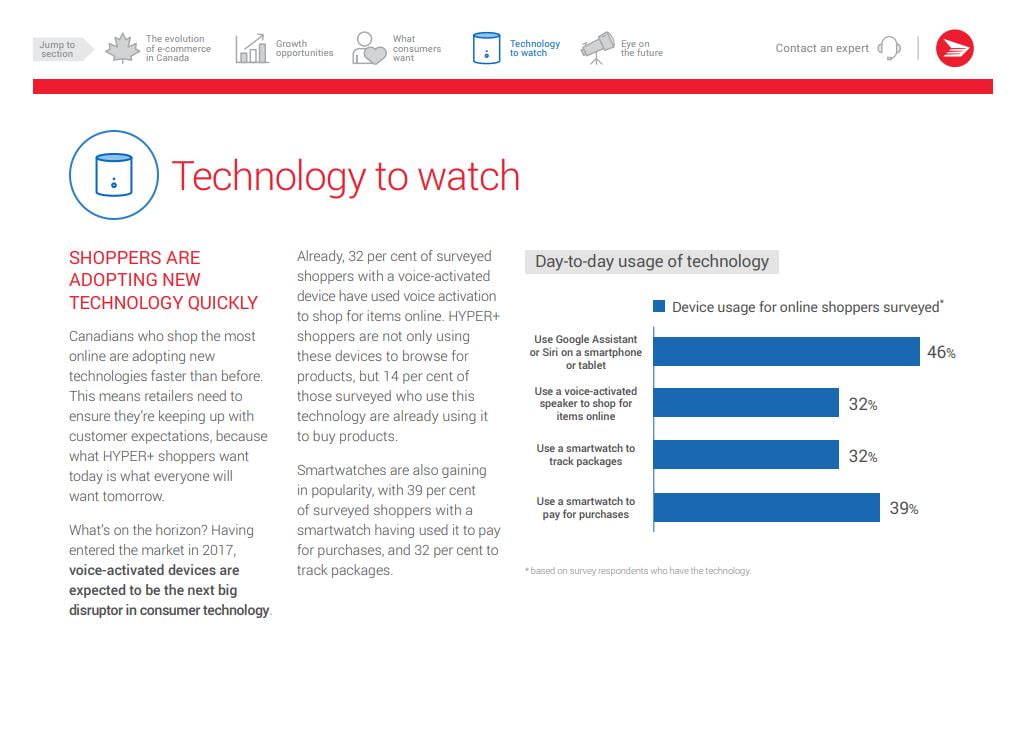
Data will help point you in the right direction for what channels and strategies to leverage depending on your industry and niche.
Similarly, harness your inner Inspector Gadget and spy on competitors.
What channels are they using the most? Have they begun using some over others recently?
This information will also help you decide whether blogging or podcasting will be a better focus.
How much time do you have?
A simple podcast episode can be recorded in ten to fifteen minutes. No exaggeration.
A long-form blog post on the other hand? You’re looking at several hours of blood, sweat, and tears.
If you’re bootstrapping a business, you’ll most likely be producing the content all by yourself or at minimum overseeing a large part of the process while employees handle it.
In either case, I highly suggest you audit your time inventory.
You could potentially record numerous podcast episodes in one session then publish them over the period of a week or longer.
Articles worth their weight typically have a much longer turn around time, stunting reach and momentum.
Check out my friend Zach over at Profitableads.com. He grows his ad agency through podcasting and plans to grow future businesses the same way.
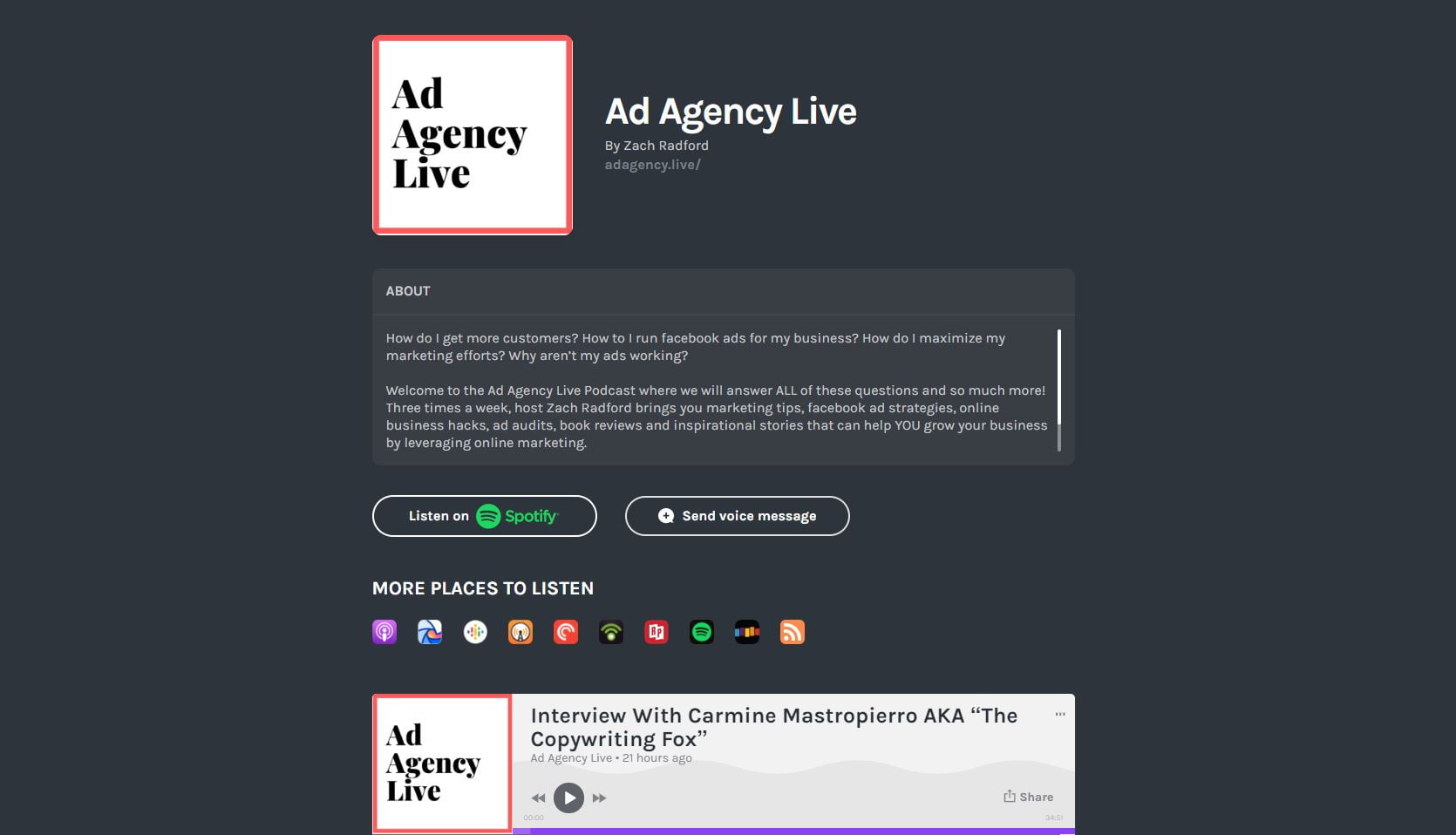
Listen to the episode we did together recently while you’re at it 🙂
He’s able to achieve a large reach in a small amount of time thanks to how optimized podcasting is.
If you have the time to publish long-form blog posts, by all means, do it.
However, I believe most companies will benefit from the bang-for-your-buck aspect of podcasting.
Final thoughts on what’s better between podcasts or blogs
Podcasting and blog posts are incredibly effective channels for reaching an audience and growing a brand.
However, which one is the best?
I would say that blogging is better suited for businesses with large budgets and those interested in SEO.
On the other hand, podcasting can be taken advantage of with less capital, tools, and time, making it ideal for bootstrapping companies.
Taking an omnichannel approach is great in the long term horizon as you want the biggest reach possible, but it’s best to double-down on one strategy first.
So, don’t wait around. Start creating a blog or podcast today and watch the customers pour in!




